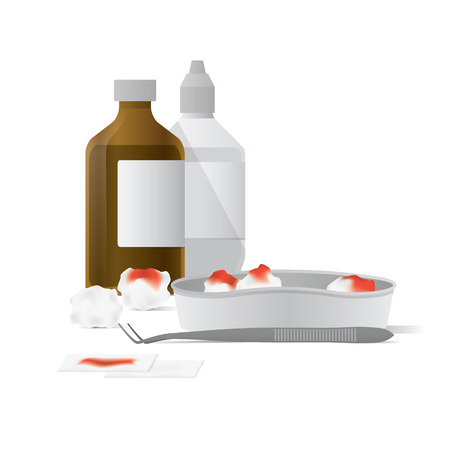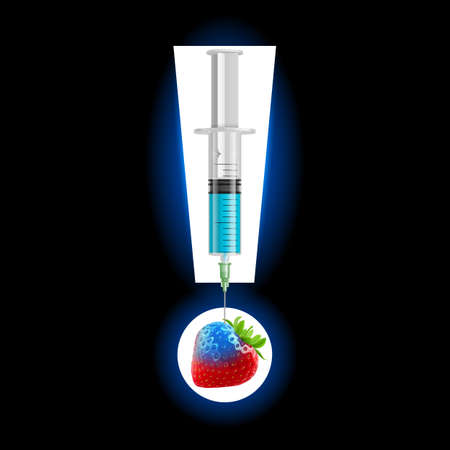1. Understanding Peptides and Their Role in Skincare
Peptides have become a buzzword in the skincare industry, especially in anti-aging products. But what exactly are peptides, and why are they essential for maintaining youthful skin? Let’s break it down in simple terms.
What Are Peptides?
Peptides are short chains of amino acids, which are the building blocks of proteins like collagen, elastin, and keratin. These proteins are vital for maintaining skin firmness, elasticity, and overall health. As we age, our natural collagen production decreases, leading to wrinkles and sagging skin. This is where peptides step in—they help signal the skin to produce more collagen, keeping it firm and youthful.
How Do Peptides Function in the Skin?
Peptides work as messengers that tell your skin cells to perform specific functions. When applied through serums or creams, they penetrate the skin barrier and stimulate collagen production, promote hydration, and even aid in repairing damaged skin. Different types of peptides serve different purposes:
| Type of Peptide | Main Function |
|---|---|
| Signal Peptides | Stimulate collagen and elastin production to improve skin texture and firmness. |
| Carrier Peptides | Aid in delivering essential minerals like copper to enhance skin repair and regeneration. |
| Enzyme-Inhibitor Peptides | Help prevent the breakdown of collagen and elastin, slowing down signs of aging. |
| Neurotransmitter Peptides | Smooth out fine lines by relaxing facial muscles, similar to how Botox works. |
Why Are Peptides Essential for Youthful Skin?
The reason peptides are so effective in anti-aging serums is that they address multiple signs of aging at once. Unlike some skincare ingredients that only provide surface-level hydration or temporary plumping effects, peptides work at a deeper level to enhance the skin’s natural ability to regenerate and stay firm over time.
The Benefits of Using Peptide-Based Skincare
- Boosts Collagen Production: Helps restore lost collagen for firmer, smoother skin.
- Improves Hydration: Supports the skin’s natural moisture barrier to maintain a youthful glow.
- Aids in Skin Repair: Encourages faster healing from environmental damage like sun exposure.
- Smoother Fine Lines: Some peptides relax facial muscles, reducing wrinkle depth over time.
If youre looking for an ingredient that goes beyond basic hydration and actively supports your skins long-term health, peptides should definitely be on your radar. Now that we understand their role in skincare, let’s explore how incorporating them into your routine can maximize their benefits.
2. How Peptides Stimulate Collagen Production
Collagen is the key protein responsible for keeping your skin firm, smooth, and youthful. However, as we age, collagen production naturally declines, leading to fine lines, wrinkles, and sagging skin. This is where peptides come in—these powerful ingredients help stimulate collagen synthesis, allowing your skin to maintain its elasticity and structure.
Understanding Peptides and Their Role in Skin Health
Peptides are short chains of amino acids that serve as building blocks for proteins like collagen and elastin. In anti-aging serums, peptides send signals to skin cells, encouraging them to produce more collagen. This process helps repair damage caused by aging and environmental factors such as UV exposure and pollution.
How Do Peptides Boost Collagen?
Different types of peptides work in unique ways to enhance collagen production. Here’s a breakdown of how they function:
| Type of Peptide | Function |
|---|---|
| Signal Peptides | Send messages to skin cells to increase collagen production. |
| Carrier Peptides | Deliver essential minerals like copper and magnesium to support collagen formation. |
| Enzyme-Inhibitor Peptides | Prevent the breakdown of existing collagen, helping maintain skin firmness. |
| Neurotransmitter-Inhibitor Peptides | Smooth out expression lines by relaxing facial muscles. |
The Science Behind Peptide Absorption
A major advantage of peptides in anti-aging serums is their ability to penetrate the skin effectively. Unlike larger protein molecules that struggle to be absorbed, peptides are small enough to reach deeper layers of the skin. This allows them to work at a cellular level, stimulating collagen production where it matters most.
The Benefits of Using Peptide-Based Serums
- Smoother Skin: Increased collagen helps reduce fine lines and wrinkles.
- Improved Elasticity: Firmer skin means less sagging over time.
- Hydration Boost: Some peptides enhance moisture retention for a plumper appearance.
- Sensitive Skin Friendly: Most peptides are gentle and suitable for all skin types.
If youre looking for an effective way to combat aging signs, incorporating a peptide-based serum into your skincare routine can be a game-changer. By consistently using these powerful ingredients, you can support your skin’s natural ability to produce collagen and maintain a youthful glow.

3. Key Peptides to Look for in Anti-Aging Serums
When choosing an anti-aging serum, understanding the key peptides can help you make an informed decision. Peptides are short chains of amino acids that act as building blocks for proteins like collagen and elastin. Different types of peptides serve unique functions in boosting skin health and reducing signs of aging.
Signal Peptides
Signal peptides play a crucial role in stimulating collagen production by sending messages to skin cells, encouraging them to produce more structural proteins. This helps improve skin firmness, smooth out fine lines, and enhance overall elasticity.
Carrier Peptides
Carrier peptides assist in delivering essential minerals, such as copper and magnesium, to the skin. These minerals are vital for skin repair and regeneration, helping to strengthen the skin barrier and maintain a youthful appearance.
Enzyme-Inhibitor Peptides
Enzyme-inhibitor peptides work by preventing the breakdown of collagen and elastin caused by environmental stressors and aging. By slowing down this degradation process, these peptides help keep the skin plump and resilient for longer.
Comparison of Key Peptides
| Peptide Type | Main Function | Skin Benefits |
|---|---|---|
| Signal Peptides | Stimulate collagen production | Improves firmness, reduces wrinkles |
| Carrier Peptides | Deliver essential minerals | Aids in skin repair and regeneration |
| Enzyme-Inhibitor Peptides | Prevent collagen breakdown | Keeps skin plump and youthful |
Selecting the Right Serum
If youre looking for an anti-aging serum, check the ingredient list for these peptides. Many high-quality serums combine multiple peptide types to maximize their benefits. Choosing a serum with signal, carrier, and enzyme-inhibitor peptides can provide comprehensive support for maintaining youthful, radiant skin.
4. Maximizing the Benefits of Peptides in Your Skincare Routine
Peptides are a powerful ingredient in anti-aging serums, but to get the most out of them, it’s essential to use them correctly in your skincare routine. From layering with other active ingredients to ensuring proper application, here’s how you can maximize their benefits.
How to Layer Peptides with Other Skincare Ingredients
Layering peptides correctly can enhance their effectiveness and help boost collagen production. Here’s a simple guide on how to combine them with other common skincare ingredients:
| Ingredient | How to Use with Peptides |
|---|---|
| Hyaluronic Acid | Apply before peptides to hydrate the skin and improve absorption. |
| Vitamin C | Use in the morning before peptides for antioxidant protection, but some people may prefer using them separately. |
| Retinol | If using both, apply peptides in the morning and retinol at night to avoid irritation. |
| Sunscreen | A must-have! Always apply sunscreen as the last step in your morning routine. |
The Best Way to Apply Peptide Serums
The way you apply your peptide serum can affect its performance. Follow these steps for optimal results:
- Start with a Clean Face: Wash your face with a gentle cleanser to remove dirt and oil.
- Tone (If Needed): If you use a toner, apply it before your peptide serum.
- Dab on Peptide Serum: Use a few drops and gently pat it into your skin instead of rubbing.
- Add Moisturizer: Lock in hydration by applying a moisturizer after your serum.
- Sunscreen During the Day: If it’s morning, finish with sunscreen to protect your skin.
Avoiding Common Mistakes When Using Peptides
Mistakes in application can reduce the effectiveness of peptides. Here are some common pitfalls and how to avoid them:
- Avoid Overloading Ingredients: Using too many actives at once (like combining retinol, acids, and peptides) can lead to irritation.
- Ditch Harsh Exfoliants: Strong exfoliants like glycolic acid may break down peptides, so space them out in your routine.
- Be Patient: Peptides take time to show results—consistent use over several weeks is key.
The Takeaway: Consistency Is Key
The best way to maximize peptide serums is through consistent use and proper layering. By following these tips, you can enhance collagen production and keep your skin looking youthful and healthy!
5. Are Peptides Right for You? What to Consider Before Adding Them to Your Routine
Peptides in anti-aging serums can do wonders for collagen production, but they may not be a perfect fit for everyone. Understanding your skin type, potential side effects, and how to choose the right peptide serum will help you get the best results.
Understanding Different Skin Types
Your skin type plays a crucial role in determining how well peptides work for you. Here’s a quick guide to help:
| Skin Type | How Peptides Benefit | Things to Consider |
|---|---|---|
| Oily Skin | Helps regulate oil production while boosting collagen. | Look for lightweight, non-comedogenic formulas. |
| Dry Skin | Supports hydration and strengthens the skin barrier. | Opt for peptide serums with added moisturizing ingredients. |
| Sensitive Skin | A gentle way to promote collagen without irritation. | Avoid serums with strong active ingredients like retinol or strong acids. |
| Mature Skin | Targets fine lines, wrinkles, and loss of firmness. | Select serums with multiple peptide complexes for enhanced benefits. |
Potential Side Effects of Peptides in Skincare
While peptides are generally safe, some people may experience mild reactions. Here’s what to watch for:
- Irritation: Some individuals may develop redness or itching, especially if they have sensitive skin.
- Pimples or Breakouts: Heavier formulations might clog pores, particularly for those with acne-prone skin.
- No Visible Results: Peptides take time to show effects—consistency is key!
Selecting the Best Peptide Serum for Your Needs
The right peptide serum should align with your skincare goals. Consider these factors when choosing one:
#1. Ingredients Matter
Avoid unnecessary fillers and look for serums that combine peptides with hydrating ingredients like hyaluronic acid or niacinamide.
#2. Choose the Right Type of Peptides
- Copper Peptides: Help repair damaged skin and improve elasticity.
- SIGNAL Peptides: Stimulate collagen and elastin production for firmer skin.
- CARRIER Peptides: Deliver essential minerals to support skin health.
#3. Check for Complementary Ingredients
If you use other active ingredients like vitamin C or retinol, ensure your peptide serum works well with them instead of causing irritation.
#4. Patch Test First!
No matter how promising a product sounds, always patch-test on a small area before applying it all over your face.
If you’re new to peptides, start slow and observe how your skin reacts before making them a staple in your routine!


